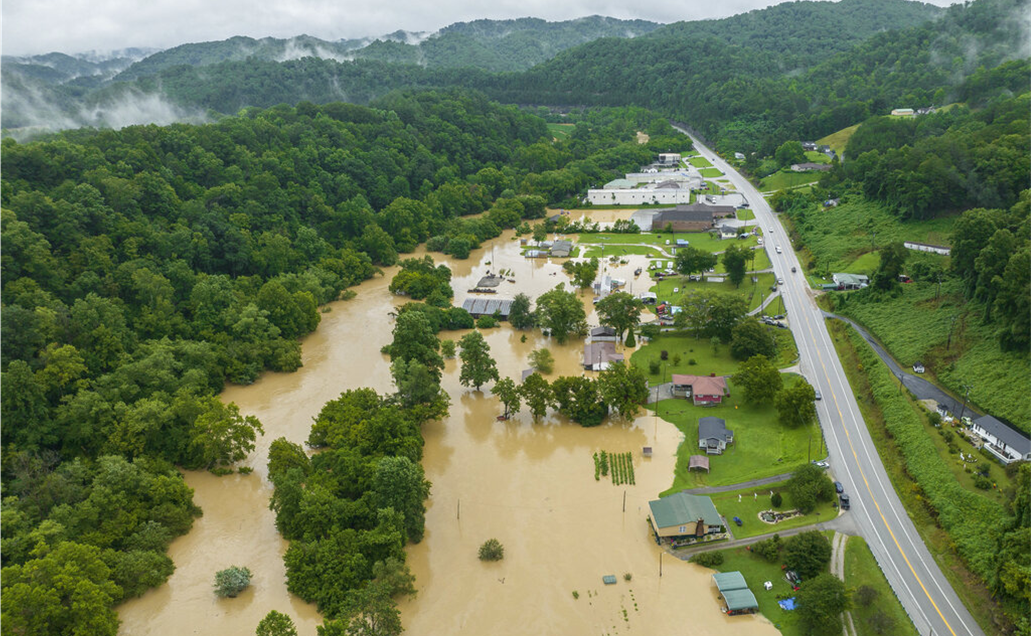On Friday, March 24, the Park Center for Independent Media and the Finger Lakes Environmental Film Festival hosted a roundtable conversation with the goal of unpacking the multiple voices of Appalachia.
This event brought together three contributors to The Edge, PCIM’s online magazine, to open up an urgent and significant dialogue about Appalachia, the floods that ravaged them in 2022, the environment, film and media representations, literature, and climate grief multi-layered ways to understand this important but often overlooked region in the United States.
The discussion began with speakers acknowledging the human factor in these devastating “natural” disasters that have impacted the Appalachian region.
“The language we use about natural disasters obscures the way that there are certain regions that are targeted in a way that is not natural at all,” claimed Anna Creadick, a professor of English American Studies at Hobart and William Smith Colleges in Geneva. “There are cultural and structural designs in place that inform these disasters.”
Referencing his article for The Edge, which was cowritten with fellow speaker Chelsea Wessels, Matt Holtmeier explained how systematic extraction of the region’s resources, such as coal, and exploitation of the land by outside corporations have left Appalachia more vulnerable to natural disasters.
“Extractive industries are the core of trauma inside the region of Appalachia,” said Holtmeier.
Holtmeier, an associate professor and co-director of the Film and Media Studies Program at East Tennessee State University, went on to talk about how media about Appalachia influences outside perception of the region and its people.
He referenced “Spell” (2020), an Appalachian folk-horror film that was shot in South Africa that portrays “backwards” Appalachians casting ritualistic curses. The horror of the film comes from the rural, mountainous setting, pitted against a protagonist from the modern, urban world. He stressed the importance of awareness of the extraction of the image of Appalachia in media — or rather, consuming media that is filmed in one place, but that takes place in an entirely different one.
“Where is the thing made? Who is making it? As consumers we can do research and find out about these things.”
Chelsea Wessels, an assistant professor and co-director of the Film and Media Studies Program at East Tennessee State University, agreed. “The exploitation of the image of Appalachia — who these people are, what the land looks like, their history — all of this is defined by people who are outside.”
Wessels emphasized how the true horror of Appalachia is the outside exploitation under which the region lives.
“We talk about ‘Dark Appalachia,’ but how? That means something very different from creators and art within Appalachia versus how it’s portrayed when people are looking at Appalachia from the outside.”
Anna Creadick also acknowledged how Appalachia is often misrepresented or overlooked in mainstream news media. “There has been a construction of Appalachian people as politically conservative, as somehow deserving of poverty or the effects of the climate disasters,” she explained. “Appalachians are one of the last ‘safe groups’ to stereotype in the mainstream media. And that is a dehumanizing process. … The danger of othering Appalachia comes down to hiding exploitation.”
The speakers made sure to highlight the importance of local media and cultural centers such as the Appalachian Media Institute (Appalshop) and the Hindman Settlement School.
“These are places in which people inside the region can tell stories about the region,” explained Creadick. “Places for Appalachian people to tell their own stories.”
Photo by Ryan C. Hermens/Lexington Herald-Leader via AP

